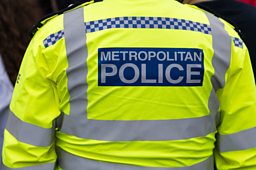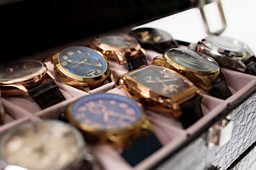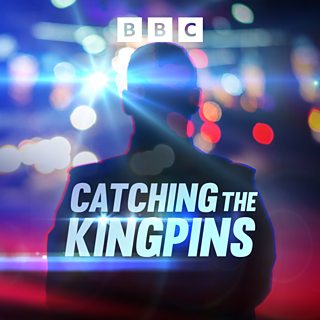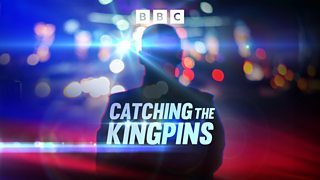What happens when the police crack an encrypted phone network used by thousands of criminals?
In the summer of 2020, police in France penetrated a supposedly uncrackable phone network called EncroChat. According to police, the encrypted phones were used by 60,000 criminals.
Suddenly, the police could read millions of messages sent from inside the world of organized crime. It detailed the movements of top tier gangsters in their own words.
For over two months, police forces across Europe were reading the secret communications of major-league criminal networks.
The biggest organised crime bust in British policing history
DCI Driss Hayoukane, the senior investigating officer who led the Met’s EncroChat operation, said “it was like being in a room with [the criminals] and they are talking freely, and they don't see you there.”
With over 3,000 arrests by forces across the UK, over 1000 convictions, the seizure of £80 million in cash, six tonnes of cocaine and 173 firearms, it was the biggest organised crime bust in British policing history.
The 91�ȱ�’s Mobeen Azhar found out how the EncroChat story unfolded and discovered some interesting facts about the case.

The Met discovered corrupt police officers in their own ranks
In 2020, the Metropolitan police came across information that one of their own officers was working for a gang involved in wholesale drug trafficking and money laundering.
Met police officer PC Kashif Mahmood had been on the force for ten years and had won five awards for his service.
But police suspected that Mahmood was also secretly working for an organised crime gang, the Khan brothers, in East London.
At first, Mahmood claimed he had been threatened by the criminals and had acted under duress. He said he had not received a financial reward from the Khan gang for helping them steal cash back from money launderers.

But evidence uncovered in the messages hacked from the EncroChat network, proved otherwise.
It’s the most brazen corruption I’ve seen in my time investigating”DI Andy Smith
DI Andy Smith, an anti-corruption officer working on the case, said “[EncroChat] gave us the missing pieces of the jigsaw” which helped get Mahmood convicted.
When messages sent between the Khan brothers and a contact in Dubai mentioned that “Kash the Fed” had been questioned but that some luxury watches in his flat hadn’t been found by the police, it was the break in the case the Met needed.
“That clearly demonstrated to us that Kashif Mahmood had benefited financially from the activity that he had been undertaking with the Khans,” said DI Smith.
In the end, Kashif Mahmood was among the first wave of EncroChat arrests made in the summer of 2020. Once he saw all the EncroChat evidence against him, he pleaded guilty. He was given a sentence of eight years in prison.
DI Smith said of the Mahmood case “it’s the most brazen corruption I’ve seen in my time investigating”.

EncroChat phones were really expensive
The phones had an incredible level of encryption and that didn’t come cheap.
It was designed, really, in my opinion, for criminal use”DCI Driss Hayoukane
The phones “cost up to £1500 to get the handset and then you had to pay 14 -15 hundred pounds every six months to keep using it”, said DCI Driss Hayoukane. “Even if you got into the covert operating system, they had a remote way to wipe that, so getting the messages was difficult”.
The phones also had a duress PIN code. This meant, if you got arrested you could give the police a particular set of numbers which wiped the phone of any evidence.
“It was designed, really, in my opinion, for criminal use”, continued DCI Hayoukane.
This assertion that EncroChat was built with illegal uses in mind formed an important part of the French police’s justification for trying to hack the network.

Criminals in their 20s were using EncroChat to ‘fast-track’ themselves
Most of the users prosecuted from the EncroChat hack were involved in drug trafficking or the violence, gun dealing and money laundering that supports it.
The Met police produced a network chart showing links between EncroChat users in London. It showed a large web of interconnected drug trafficking networks.
Detectives had previously assumed that rival organised crime groups did not work together. The network chart revealed that is not the case. “Group A will deal with Group B because it's financially beneficial for both,” explains DCI Driss Hayoukane, “they may have a conflict and that conflict might still be ongoing in the background, but business trumps everything.”
The EncroChat hack also unmasked a new, younger generation of drug traffickers.
You don’t have to have done that 20–25-year apprenticeship of being a criminal”DCI Driss Hayoukane
Harry Hicks-Samuels, a watch dealer from Denham in Buckinghamshire, was just 27 years old when he was arrested as a result of the Encrochat hack but was already a significant importer of cocaine.
EncroChat provided access to drug trafficking markets.
“You don’t have to have done that 20–25-year apprenticeship of being a criminal,” said DCI Hayoukane.
“As long as you’ve got the money, you can go in and start buying kilos of coke... and then you start to move up”.


